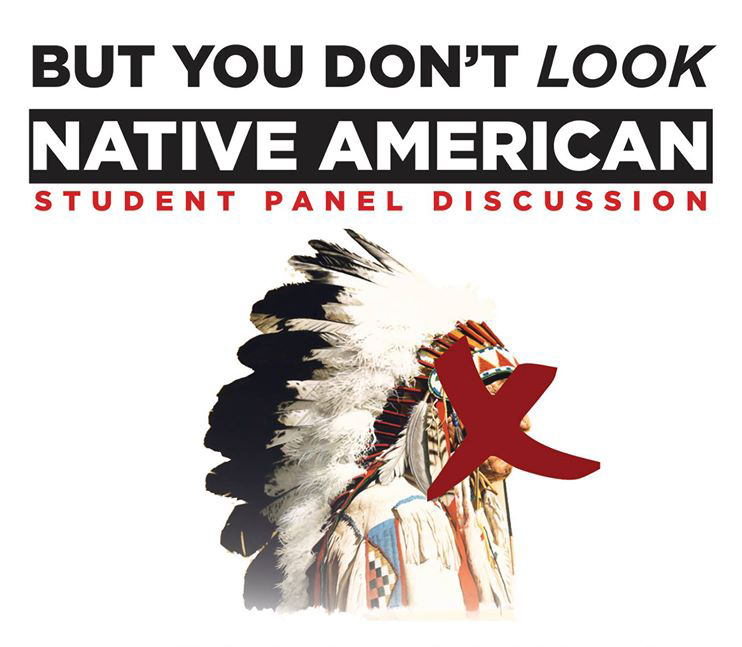Native Americans don’t only live in the past or in teepees, said senior Chantelle Yazzie, contrary to how Hollywood may portray them. “We’re connected to other cultures,” she explained. “We have our own take on the 21st century.”
She and other Native American students challenged stereotypes like these and shared their own stories at the “But You Don’t Look Native American” student panel last week, put on by the MSDO.
The panel — made up of four Calvin students of varying Native backgrounds — began by discussing their thoughts on the “Hollywood Indian” stereotype and the way Natives were portrayed in the old Edward Curtis photos displayed recently at Calvin. However, the discussion mainly focused around the students’ life stories and their experiences transitioning to Calvin as “a minority of minorities,” as panel member Ben Chee put it.
“I wanted to make it known that there are Natives on campus here and we don’t look like those portrayals by Hollywood,” explained Yazzie, a social work and art major who emceed the panel and is Navajo herself. The appearance of students on the panel did not fit Hollywood stereotypes, Yazzie was quick to point out.
While Yazzie’s initial goal was to discuss how the “Hollywood Indian” affects the perception of all Natives, she said the panel “took a turn to share what our struggles were and what ways that impacts the students here.”
Chee, a senior music major who is half Navajo, explained that, though we often hear about what happened to Natives in the past, “we don’t hear much about the struggles happening today.”
“Their stories made me really think and change my perception of Native Americans,” said Benedicta Arthur, a junior who came to the panel. “It made me think of them in the present time instead of as a group of people stuck in the past.”
“I was surprised that they all seemed to know a good amount of their Native language. I didn’t think such an old language could be in continuation,” said first-year student Ben Aparicio, referencing how some of the students introduced themselves in Navajo. “I thought it was cool, but I didn’t expect it — the layers of culture and complexity that’s there.”
Having panels like this “gives a voice to a lesser known minority,” said Chee. “You primarily think of black and white and Asian and sometimes Hispanic but that’s only four voices speaking.” Hearing from Native students, he said, “gives a new perspective.”
This resonated with Aparicio as well. “It’s such a different culture from other minorities and the stereotypes they get are so different,” he said.
Arthur said that the panel “was really enlightening and made me want to let others know more about their culture.”
Yazzie hopes that this panel encouraged people “to ask the right questions and to pre-research this perspective.” Several students on the panel talked about the comments they have received over and over after coming to Calvin such as: “Do you still live in teepees?” and “It’s easy for you because you have so many scholarships.”
Yazzie said in the interview, “I love educating people about who I am but it’s tiring when I have to answer the same difficult questions people ask out of ignorance and arrogance.” She said she and the panelists “were talking afterward how good it felt to talk to the audience.”
“A lot of things that people shared were very personal and specific to their own experience,” said Chee. “It was important to talk about those things and to become real to other people. I would hope the other panelists would gain more confidence in themselves to share their stories.”
Aparicio liked how the panel members “unpacked their living conditions and their lives really well and shared from their experiences.”
“It made me see the social aspect of Native American culture, areas not covered by the news,” said Arthur.
“Natives around Grand Rapids say they never even considered Calvin and don’t even know there are Natives here,” said Yazzie. Having more times of sharing and discussion such as these, “would help make a welcome mat for Natives… I would like that to expand more to Natives around here.”
“We do see Calvin as a home and we want to make sure there’s a welcome mat for us, too,” she added.
“The main point of the panel was to change stereotypes and I think we accomplished that,” said Chee.
However, he added, “There’s so much more to say.”
Yazzie agreed: “I want to have a part two.”








